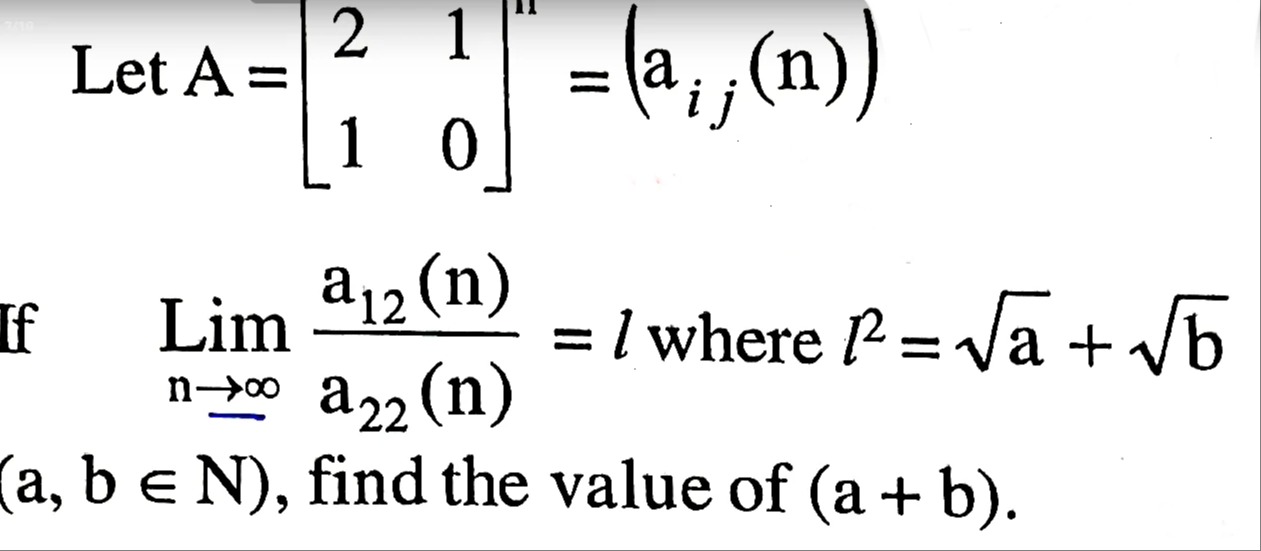Question
Question: Let $A = \begin{bmatrix} 2 & 1 \\ 1 & 0 \end{bmatrix}^n = (a_{ij}(n))$ If $\lim_{n\to\infty}\frac{a...
Let A=[2110]n=(aij(n))
If limn→∞a22(n)a12(n)=l where l2=a+b
(a,b∈N), find the value of (a+b).

17
8
9
72
17
Solution
The characteristic equation of the matrix M=[2110] is λ2−2λ−1=0, with eigenvalues λ1=1+2 and λ2=1−2.
The elements a12(n) and a22(n) can be expressed in terms of these eigenvalues. For a12(n), using the initial conditions a12(0)=0 and a12(1)=1, we find a12(n)=221((1+2)n−(1−2)n). For a22(n), using the initial conditions a22(0)=1 and a22(1)=0, we find a22(n)=(21−221)(1+2)n+(21+221)(1−2)n.
To find the limit l=limn→∞a22(n)a12(n), we divide both the numerator and the denominator by the dominant eigenvalue term (1+2)n: l=limn→∞(1+2)na22(n)limn→∞(1+2)na12(n)=21−221221=2−11=2+1.
We are given l2=a+b. l2=(2+1)2=2+22+1=3+22. So, 3+22=a+b. By inspection, we can set a=3 and b=22, or vice versa. This gives a=32=9 and b=(22)2=8. Alternatively, we can square both sides: (3+22)2=(a+b)2 9+122+8=a+b+2ab 17+122=a+b+2ab. Equating the rational and irrational parts, we get a+b=17 and 2ab=122⟹ab=72. The natural numbers a and b that satisfy a+b=17 and ab=72 are 8 and 9.
Therefore, a+b=8+9=17.
